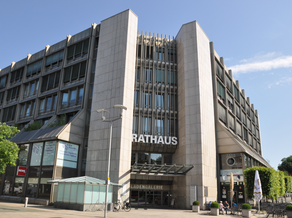Property drainage
The city of Bad Homburg v.d.Höhe takes care of the wastewater. This is stated in the Hessian Water Act. The city drainage department is an authority. It monitors and approves property drainage systems. You need a permit from the city. This applies to the construction, modification or dismantling of wastewater systems. This applies in particular to house connections.
Focal points
Important issues in property drainage are Protecting buildings from backwater from the sewer system. Using rainwater correctly. Renovating underground pipes and house connections. These are the supply sewers. We also specify what industrial wastewater systems are allowed to do. These discharge non-domestic wastewater into the sewer system. Certain things are not allowed in the wastewater system. This is important for safety. It also protects the environment.
Rainwater utilization
Rainwater from roofs can be used. For example, for washing clothes, for the toilet, for cleaning or for the garden. This saves the property owner money. They have to buy less fresh water. The charge for waste water is also lower. The volume of the cistern counts towards the rainwater fee. Cisterns are often mandatory for new buildings.
Surface unsealing
The charge for rainwater depends on the degree of sealing. New plans should be sealed as little as possible. Surfaces should be permeable to water. Eco-paving on yards and parking spaces saves on charges. This is better than asphalt.
Rainwater retention
Large properties need rainwater retention. This applies above a certain size. This usually applies to commercial properties. The sewer system cannot absorb a lot of rain. A rainwater retention area is necessary. This must be agreed with the municipal drainage system.
Backwater
Owners and operators must protect their buildings. They are responsible themselves. Measures help to avoid damage and costs. They also relieve the burden on the public infrastructure. This increases the safety of the neighborhood.
Discharge bans - what does not belong in the sewer
Do not use the toilet and drains for waste. Otherwise you will clog the sewer. This pollutes the water. Hygiene waste belongs in the garbage can. This includes cotton buds, cotton pads, panty liners, wet wipes, sanitary towels and tampons. The landlord pays for cleaning up any soiling. This can put a strain on the tenant/landlord relationship.
Building materials, varnishes and paints must not be disposed of in the wastewater system. They settle in pipes. This can pollute water. Observe the Bad Homburg waste calendar. Food waste does not belong in the sewage system. They attract rats. Rats transmit diseases and damage buildings and plants. Everyone should observe the discharge bans. This is in everyone's interest.



